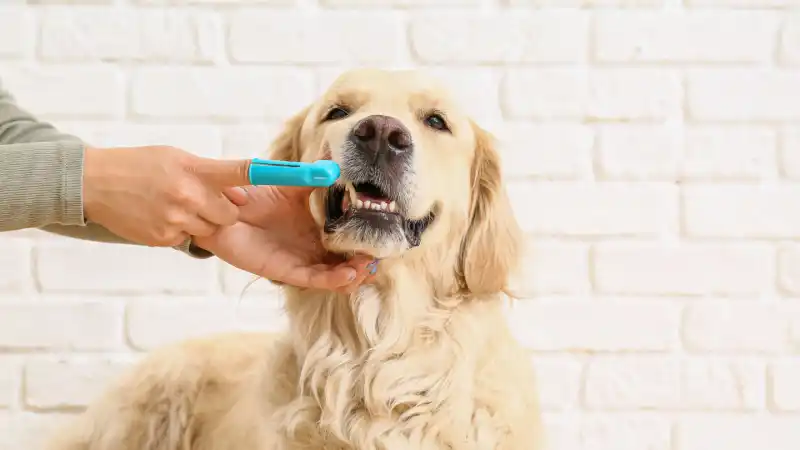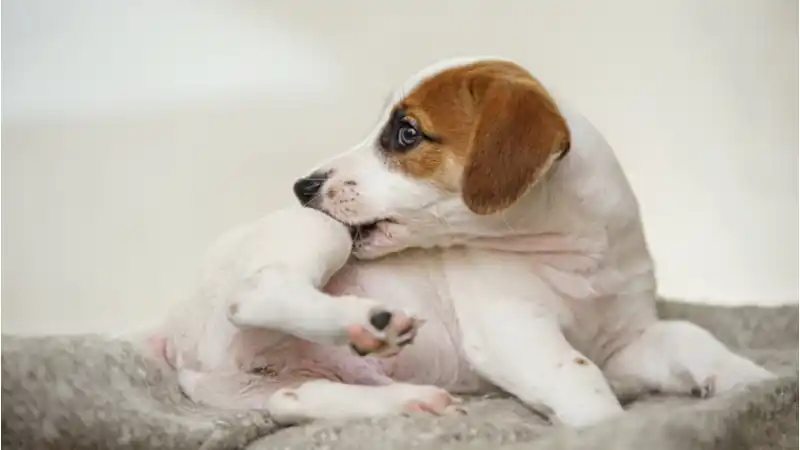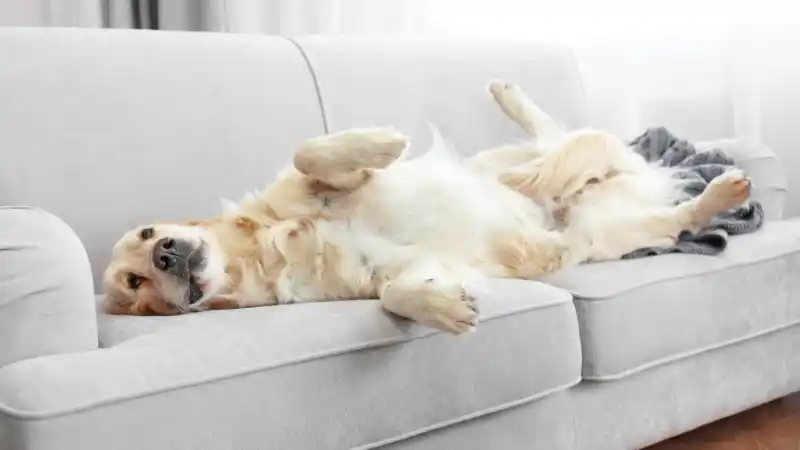Caring for Hunting Dogs After the Hunt
Proper care is a necessity for a hunting dog after a day in the field. Here are ways to spot an injury and ensure your dog's health, both during the hunt & at home.
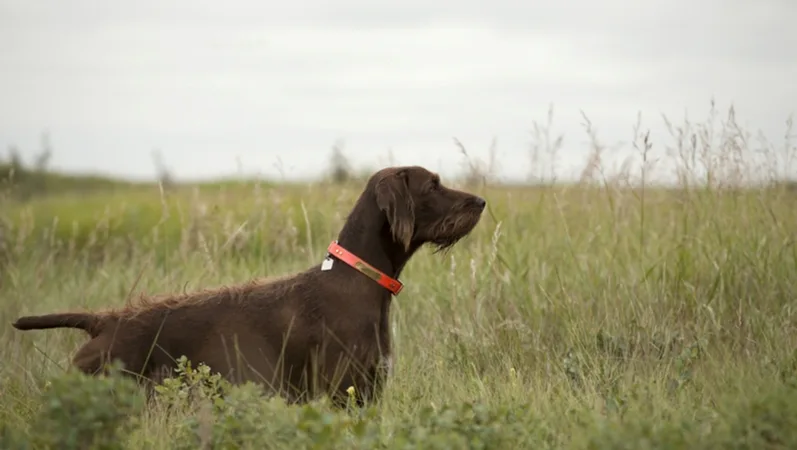
After a long day in the field, it's important to take the time to properly care for your hunting dog. Not only will this keep them safe and healthy, but it will also help improve their stamina for future hunts.
In this article, we'll discuss some of the basics of post-hunt dog care. We'll explain how to examine dogs for injuries immediately after the hunt, and provide some practical tips to help keep them healthy and in shape. Lastly, we'll highlight a few safety essentials you should take with you on your next hunt.
Examining Your Dog for Injuries After the Hunt
One of the most important things you can do after a day in the field is examine your dog for injuries. Even if they don't seem to be hurt, it's important to check for cuts, scrapes, and other wounds that could become infected. A thorough examination of your dog will also help you spot fleas and ticks, which can carry diseases like Lyme disease and Rocky Mountain Spotted Fever.
Start by looking in your dog's mouth for broken teeth, bleeding, or other injuries, then check the eyes for signs of injury or foreign objects. Look closely at the ears, snout, and head for any wounds, bumps, or other problems. Next, run your hands along your dog's whole body to check for injuries there as well.
Finally, examine your dog's legs and paws. Pay special attention to the areas between the toes, as ticks, grass seeds, and other foreign objects can easily become lodged there. Once you've finished your examination, run a fine-toothed flea comb over your dog's entire body to check for fleas and ticks.
When carrying out your examination, make sure to remove any small foreign objects carefully to avoid further injury. Larger injuries and wounds should be treated by a veterinarian as soon as possible. If you find fleas when combing your dog, submerge the comb in hot soapy water to kill them. Ticks should be gently removed using fine-point tweezers or a tick removal tool before disinfecting the area.
Keeping Your Hunting Dog Healthy
A healthy dog is a happy one, so it's vital to do everything you can to keep your hunting buddy in tip-top shape. Here are a few practical tips to help you do just that:
Feed a High-Quality Diet
Hunting dogs are very active, and they need a diet that will fuel their demanding lifestyle. Feed your dog a performance diet that's high in fat and high-quality protein. This type of diet is specially formulated for active dogs and will help provide energy, keep them in great shape, and prevent nutritional deficiencies.
Provide Regular Exercise
It's not just during the hunt that your dog needs exercise; they also need regular physical activity to stay healthy and in shape. Make sure to provide your dog with plenty of opportunities for exercise and training to keep them fit, strengthen their muscles, and prevent boredom. Walking, hiking, playing sports, and practicing agility training are all great exercises for your hunting dog.
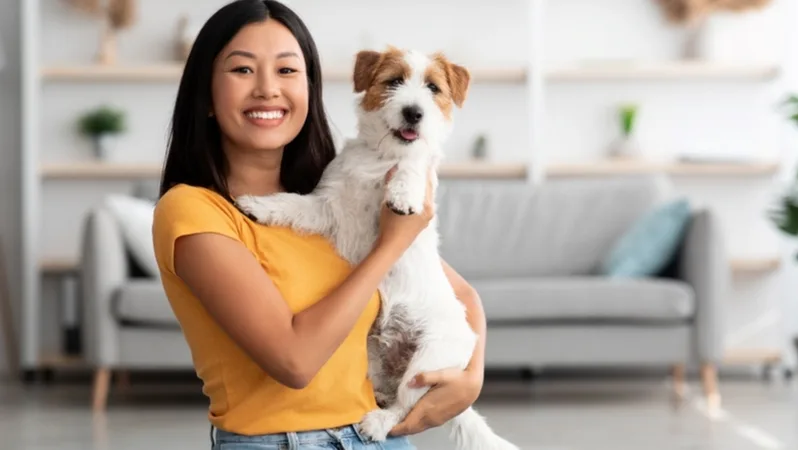
Every Dog and Cat Deserves the Pet Insurance of Champions
Get prize-winning care for your pets.
Take Them for Regular Veterinary Checkups
While it's critical to examine your dog for injuries after hunts and other strenuous activities, it's also vital to take them for regular veterinary checkups. These visits will help you identify and address any health problems before they become serious, allowing your dog to live a long and healthy life. Make sure to ask your veterinarian about appropriate vaccines and parasite preventives for your hunting dog. This is important because some diseases are more prevalent in certain parts of the country.
Safety Essentials for Your Hunting Dog
No matter how well you care for your hunting dog, there's always a risk of injury while in the field. That's why it's important to be prepared for any potential emergencies. Here are a few safety essentials you should always have with you when hunting:
First Aid Kit for Dogs
Make sure to carry a first-aid kit for your dog with you at all times. Include essentials like gauze, cotton balls, medical tape, eyewash, topical triple antibiotic ointment, and tweezers. You should also include contact information for a veterinarian and animal poison control center in your kit. Keep everything in a waterproof bag to ensure the items stay safe and dry.
Fresh Water and a Collapsible Bowl
Your dog will need plenty of fresh water while out hunting, so make sure to pack a collapsible bowl and a good supply of bottled water. The bowl can be easily folded when it's not in use, so you can carry it conveniently without taking up much space.
Hunting Vest
Visibility is key when hunting with a dog, especially if you're in dense cover. That's why it's a good idea to outfit your dog with a hunting vest. The vest will help make them more visible to you and other hunters in the area, and it can also provide some protection from sharp branches, thorns, and other vegetation.
Happy Hunting
Hunting can be a great way to spend time with your dog and bond. However, it's important to take care of them after the hunt and ensure they're healthy and safe. Following the tips in this guide will help you properly care for your hunting dog and keep them in excellent shape.
Take some of the stress out of pet ownership with Accident & Illness Coverage from AKC Pet Insurance (underwritten by Independence American Insurance Company). Our pet insurance plans are designed to be there when you need them, allowing you to focus more on the health of your pet and less on costly veterinary bills.

Every Dog and Cat Deserves the Pet Insurance of Champions
Get prize-winning care for your pets.

Richard has shared his life with pets since childhood, and currently has a rescue cat and dog. He works with veterinarians and pet businesses to improve their content. To find out more, please visit his [website](https://richardrowlands.com/).
READ MORE ARTICLES